<< Previous | Displaying results 201-210 of 6768 for "" | Next >>
Chaya and her brother and two sisters were raised in a religious, Yiddish-speaking home in the town of Kozienice, situated in east central Poland near a large birch forest. As a child, Chaya learned Hebrew. She attended Polish public schools and graduated at 14. Her father owned a factory that produced handmade shoes. 1933-39: Chaya was active in the Zionist movement, through which she met her boyfriend, Lewek Szabasson. Chaya and Lewek would stroll on Kozienice's main promenade which was at the…
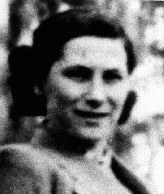
Because both of her parents had died by the time Vita was 5 years old, she went to live with her cousins. At the age of 18, Vita married Iosif Rivkin, and the couple moved to Minsk where they raised three daughters--Hacia, Dora and Berta. 1933-39: By the early 1930s, the Rivkin family lived on Novomesnitskaya Street in central Minsk, near the Svisloch River. In the 1930s the girls attended Soviet state schools and were members of the Soviet youth organization, Young Pioneers. By the late 1930s Minsk was…
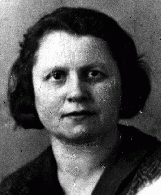
Isak was one of seven children born to devout Hasidic Jewish parents living in Dubas. By 1900, all of his siblings had immigrated to America; Isak remained in Poland due to his strong religious convictions. Through an arranged marriage, he was wed to Ester Berl when he was 18. They settled in Kolbuszowa, a small town near Dubas, where Isak ran a successful wholesale general store. 1933-39: On September 9, 1939, the German army occupied Dubas. They hanged two Jews to demonstrate the consequences of not…
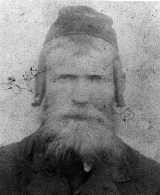
Urszula was one of four children born to Franciszek and Jadwiga Kaczmarek, who lived in the industrial city of Poznan in western Poland. The family lived at 11 Smolnej Street. Like their parents, the Kaczmarek children were baptized in the Roman Catholic faith. 1933-39: As one of the older children in the family, Urszula helped her mother with the housework. She was 10 years old when the Germans invaded Poland on Friday, September 1, 1939. German planes bombed Poznan that same day, and German troops…
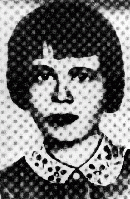
Israel was born to a religious Jewish family living in the town of Slonim. He was called Yisroel by his Yiddish-speaking parents. Israel's father, Lazar Milkow, was a baker who supported his family on a meager income. 1937-39: Israel's grandparents and many of his mother's relatives lived in a nearby village called Kaslovchina. Each summer one of the Milkow boys was invited to stay in Kaslovchina with their Uncle Herschel who worked as a farmer and horse trader. In September 1939 Slonim became part of the…
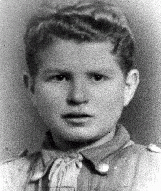
Karl-Heinz was born during World War I, while his father was in the German army. After the war, his Lutheran parents became Jehovah's Witnesses and gave their children daily Bible lessons. When Karl-Heinz was 13, the family moved to the rustic Westphalian town of Bad Lippspringe. Their home became the headquarters of a new Jehovah's Witness congregation. 1933-39: Because of the Jehovah's Witnesses' missionary work, and because their sole allegiance was to God and His commandments, their activities were…
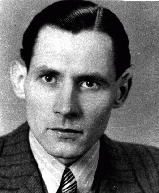
Joseph was the youngest of three children born to immigrant Jewish parents. His Polish-born father was a former officer in the Austro-Hungarian army who had met and married Joseph's Hungarian-born mother during World War I. Joseph was raised in a religious household and grew up speaking French. 1933-39: Joseph's mother says it's better here in Paris than in the poor village where she grew up. Unlike his mother, who speaks broken French, Joseph and his older sisters have grown up speaking French fluently.…
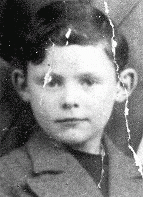
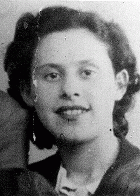
Aaron was one of four children born to a Jewish family in the northeastern Polish town of Zdzieciol. His father was a shoemaker and, along with a business partner, he also ran a shoe store in the town. Aaron attended a private Jewish school, where he studied the Polish language and history as well as Jewish history and Hebrew. 1933-39: On September 1, 1939, Germany invaded Poland. Three weeks later, Poland was partitioned between Germany and the Soviet Union [under the German-Soviet Pact]. Aaron and his…
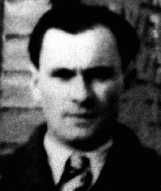
Paula was raised in a religious Jewish family in Kielce, a city in the southeast of Poland. Her family lived in a modern two-story apartment complex. Paula's father owned the only trucking company in the district. Her older brother, Herman, attended religious school, while Paula attended public kindergarten in the morning and religious school in the afternoon. 1933-39: Paula's school uniform was a navy blazer with a white blouse and pleated skirt. At age 9, she did the "Krakowiak" dance at school. Boys…
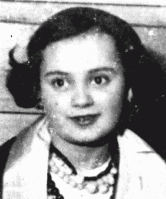
We would like to thank Crown Family Philanthropies, Abe and Ida Cooper Foundation, the Claims Conference, EVZ, and BMF for supporting the ongoing work to create content and resources for the Holocaust Encyclopedia. View the list of donor acknowledgement.